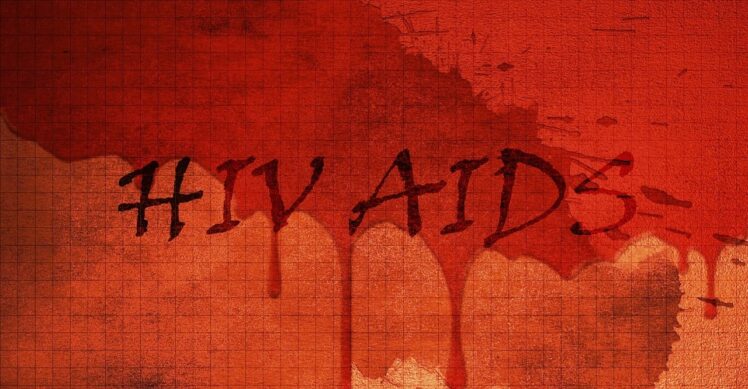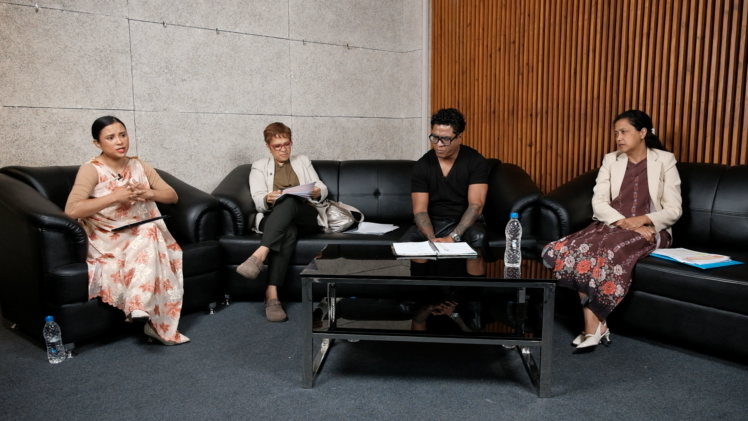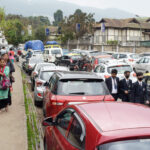
HIV cases in Meghalaya have surged by over 220% in the past two decades, with the state now ranking sixth in India for HIV prevalence. As of 2025, more than 10,000 people are living with HIV, yet much of society still treats it as a distant or taboo issue.
At a recent panel discussion hosted by 4Front Media, Health Minister Dr. Ampareen Lyngdoh, Barry L. Kharmalki of the Meghalaya State Network of Positive People, and Dr. Laura Myrthong, Deputy Director (Medical) of MACS, emphasized the urgent need for both systemic change and a shift in community attitudes.
It’s no longer just about drug users or sex workers
A key message from all panelists: HIV is now rooted within the general population. According to data from the Meghalaya AIDS Control Society (MACS):
- 52% of HIV transmission is through casual heterosexual sex
- 28% through regular partners or spouses
- Only 3% comes from commercial sex work
“The epidemic in Meghalaya is sexually driven,” said Bah Barry. “We continue to focus on drug users and sex workers, but most patients are not from these groups. Women, youth, and adolescents are now among the most affected.” And yet, policies and interventions remain focused on a narrow group, ignoring the reality of the epidemic.
Social judgment is part of the problem
Dr. Ampareen Lyngdoh pointed to deep-rooted stigma that prevents real change. People continue to share needles and engage in unprotected sex, yet society often behaves as if none of it happens. Instead of addressing the problem, communities judge, shame, and even drive people out of their villages.
Among the Khasis, there is also a strong sense of moral superiority, a belief that issues like drug use, sex work, and HIV are problems that exist elsewhere, not within our own society. This mindset has made it even harder to have honest conversations or take responsibility as a community.
While the government may offer solutions, these efforts are unlikely to succeed unless society is willing to confront the issue openly and without prejudice.
Bah Barry, who himself has faced such discrimination said, “We don’t just fight the disease, we fight the system, the stigma, our families, the church.” Even today, HIV-positive individuals are isolated.
Of the 10,000+ people living with HIV:
- 9421 are on treatment
- 85 have refused treatment
- 785 have chosen not to seek help at all
Dr. Laura added that even though testing and treatment are free, many are too afraid to come forward. They worry about what their families and communities will think. That fear is stronger than the virus itself.
ALSO WATCH:
Awareness without accountability
Meghalaya’s HIV policies, many written two to three decades ago, haven’t kept up with the current reality. While awareness programs continue, their impact is questionable.
“Many awareness campaigns are conducted just to tick boxes,” Barry said. “No one checks whether they change anything. Funding is given for concerts, football matches, but where is the follow-up and result?”
Dr. Ampareen acknowledged this gap. “We have reviewed the old approach. MACS can’t just conduct events and stop there. If someone receives funds to run a program, they must be accountable.” She added that targeted approaches are essential.
We don’t talk about the problem enough
A major concern is the silence around sex and sexual health.
“Our youth are sexually active. That’s the reality,” Bah Barry said. Instead of having honest conversations with young people, they are often met with warnings like “don’t do it, it’s a sin.” But such responses offer no protection, only denial.
Dr. Laura pointed to MACS initiatives like Red Ribbon Clubs in colleges and programs that train teachers to educate students on HIV, contraception, and sexual health.
Needle sharing and unprotected sex are common, yet society acts as if they don’t exist. Instead of support, people who use drugs or engage in sex work face judgment, stigma, and even exclusion from their own villages. This mindset makes it difficult for health interventions to succeed. Even with free testing, treatment, and awareness programs, real impact is limited if the community refuses to acknowledge the issue.
The system isn’t reaching far enough
Access to treatment continues to be a major barrier, especially for those in rural areas who have to travel long distances to reach healthcare facilities.
Bah Barry pointed out the urgent need for more ART and OST centres in the state. He highlighted that there are around 400 children living with HIV in Meghalaya, yet despite India being known as the pharmacy of the world, these children face shortages in essential medication.
Even promising programs often get discontinued without proper evaluation. Barry shared that through one project, they were able to bring back 160 people, many of them children into treatment. Yet despite its success, the program was shut down. Today, there are around 400 children in Meghalaya living with HIV, highlighting the urgent need for sustained and accountable intervention.

L to R – Ibankyntiew Mawrie (Moderator), Dr M. Ampareen Lyngdoh, Barry Leslie Kharmalki and Dr Laura Myrthong
What needs to change
Unless the silence, shame and systematic failure are addressed, the numbers will just keep rising.
Dr. Ampareen called on politicians, religious leaders, and civil society to speak out. “You can’t solve this by catching and beating up drug users.” She questioned why, if people are injecting anyway and youths are sexually active, clean syringes and condoms can’t be made easily available to prevent the spread of the disease. “But if I talk about that, people will say I’ve gone mad,” she pointed.
Barry stressed that policies should not be made for people like him without including voices like his. “If we don’t reform the way we address this, 20 years from now we’ll be doing the same thing, just burying more bodies,” he said.
Dr. Laura closed with a reminder that while HIV is a lifelong condition, it doesn’t have to be a death sentence. With regular treatment, people can live full, healthy lives and both testing and treatment are free. “The treatment is free. The testing is free. If you’re involved in high-risk activities, go get screened. Don’t be ashamed. Do it for your peace of mind. And for others” she concluded.
Beyond Awareness
After more than 30 years of awareness drives, Meghalaya has moved past the stage of just informing people about HIV. Everyone already knows how HIV spreads, how to prevent it, and that treatment is available. But the numbers are still rising, and the stigma is just as strong. This shows that information alone is no longer enough.
The rise in HIV cases reflects how little has changed in how society sees and treats people living with HIV. Drug users, sex workers, even children, many still face blame, silence, and exclusion. Programs that actually work are shut down without reason. Medicine shortages continue even though India is one of the biggest producers of generic drugs.
There are around 400 children in Meghalaya living with HIV. Young people are sexually active, yet there is no space for honest conversations, not in homes, not in schools, not in churches. Instead, we hold on to this belief that these things don’t happen here. That HIV is someone else’s problem. That if we ignore it, it’ll go away.
But it won’t!
It’s time to stop pretending that awareness alone will fix anything. It’s time to change how we talk about HIV, how we design policies, how we hold people accountable, and how we treat one another. If not, ten years from now, the only numbers we’ll be counting are the lives we’ve lost.
Silence has done enough damage. It’s time to talk. And more importantly, it’s time to listen.






